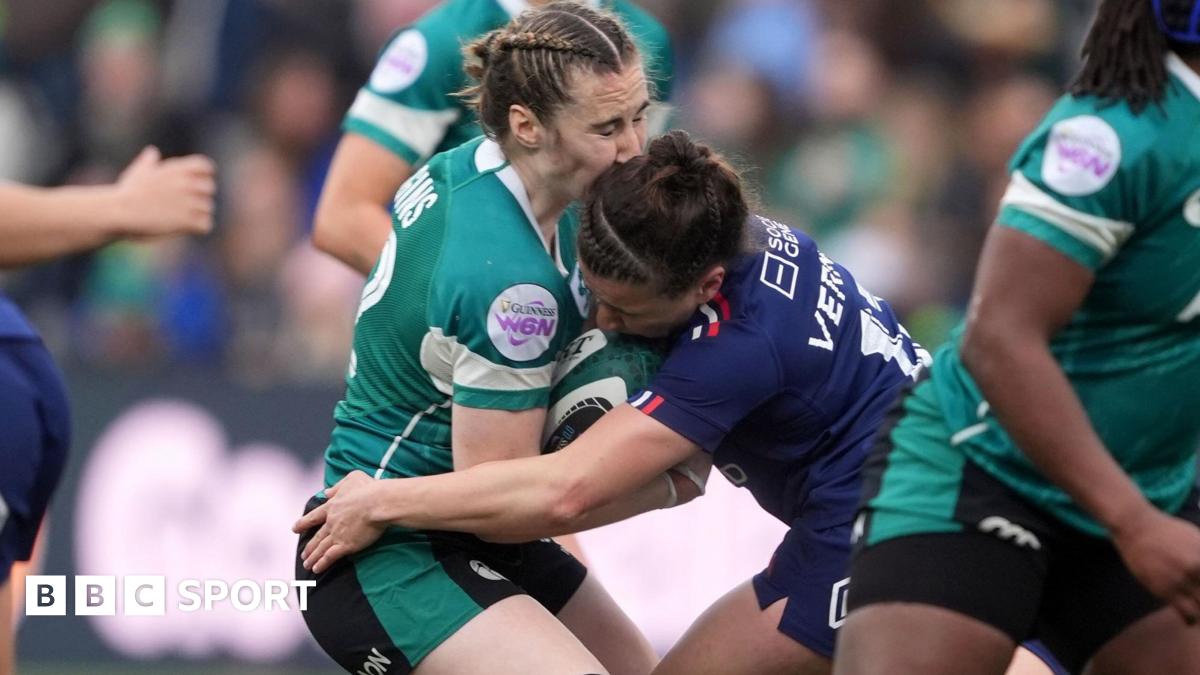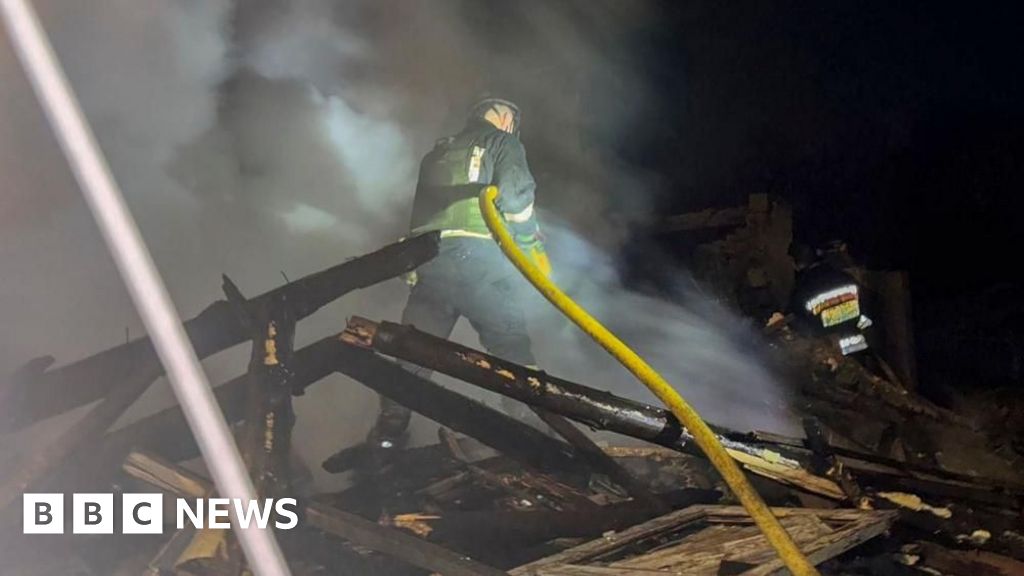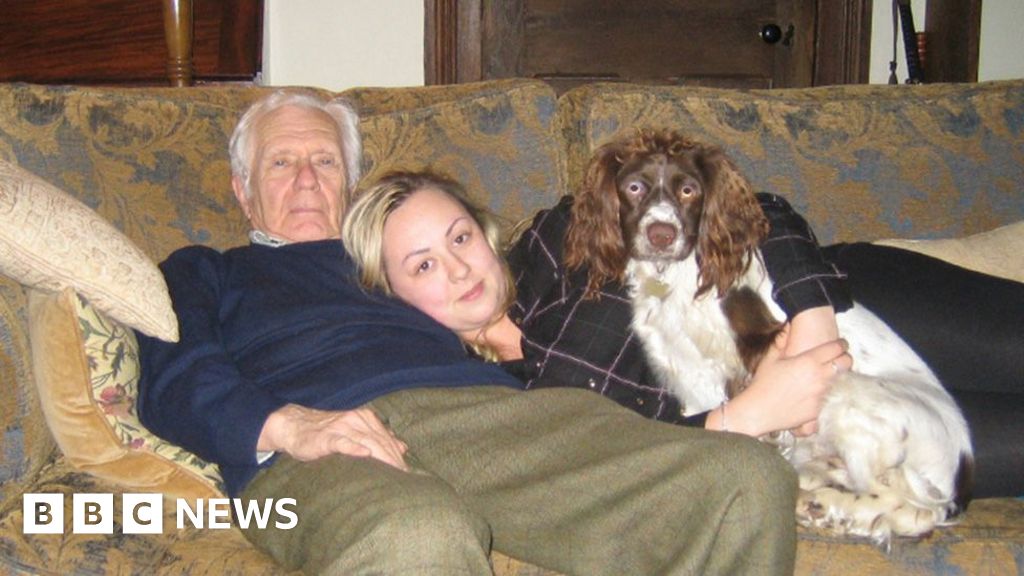
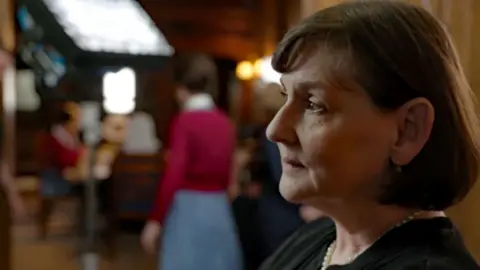 Neal Street Productions
Neal Street Productions
Heidi Thomas says her show "will always be a drama for me about women and the working classes"
Call the Midwife creator Heidi Thomas is used to being told unexpected things over her shopping trolley.
"I was in the supermarket, and a woman came up and said, 'I gave birth standing up'," she laughs. "What am I going to do with that?"
Probably more than you might think, given she's behind the popular TV series which tells a myriad of birth stories.
Thomas's Bafta-winning BBC drama explores the lives of the midwives and nuns who live together in a convent, Nonnatus House, and the families they care for in post-war east London.
"Call the Midwife will always be a drama for me about women and the working classes," she tells the BBC.
The British writer's superpower is arguably her ability to deftly mix stories of care and warmth with the brutal realities of poverty, racism, backstreet abortions, child loss and domestic abuse, to name but a few.
The BBC One show - consistently a high performer in TV ratings - is now approaching its 14th series since 2012, which is no mean feat in an increasingly competitive TV landscape.

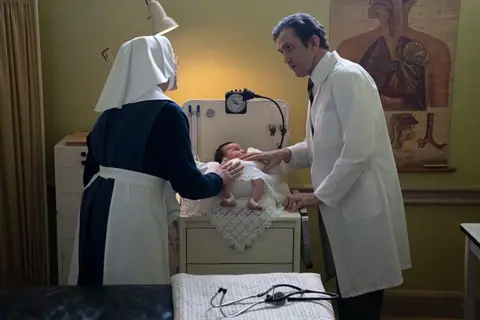 BBC/Neal Street Productions
BBC/Neal Street Productions
Sister Julienne (Jenny Agutter) and Dr Turner (Stephen McGann) with one of the smallest stars of the show - a newborn baby
Thomas manages to cram in tough storylines into a cosy 8pm, Sunday night slot, often shared with shows such as Antiques Roadshow.
There have only been two instances where she's been asked to change something in the show, which was initially set in 1957 and is about to hit the 1970s.
"One was for the haemorrhage machine," she recalls, describing a contraption which recreates post-birth blood loss.
"I think it's a unique piece of equipment to us.
"We were told the blood was too noisy on the lino [on the floor] - so that was literally about a sound effect."
The other was "a tussle" over the use of the word bastard, a dated and offensive way of describing a child born to unmarried parents.
Thomas says they had to do a bit of "creative cutting" to remove it.

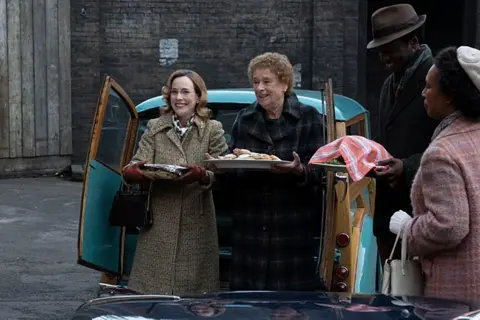 BBC/Neal Street Productions
BBC/Neal Street Productions
Nurse Shelagh Turner (Laura Main), Nurse Phyllis Crane (Linda Bassett) and Cyril Robinson (Zephryn Taitte) are full of community spirit
Amazingly, though, despite running pre-watershed, she hasn't had a single plotline censored or knocked back by the BBC.
"We've never had to compromise our style of storytelling, because it's set in Nonnatus House, " she says, where the nuns and midwives live and share words of wisdom, along with tea and cake.
"We take emotional care of our audience, so even if we push them quite hard by showing them dark emotions or desperate circumstances, we bring them back to a place where they feel safe."
She says the show challenges viewers by being "emotionally graphic".
"People often think graphic means blood sliding down the walls, but it can mean showing somebody in the pits of despair; interestingly, that's always permissible, even before the watershed.
"But even when our stories don't end happily, there is always a note of hope somewhere."

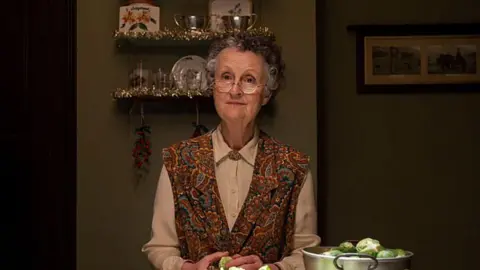 BBC/Neal Street Productions
BBC/Neal Street Productions
Miss Higgins is part of a storyline about sexually transmitted diseases
Thomas has also managed to write endless fresh storylines, reflecting the health and social issues of the era.
"People ask me every year, 'Where do you get your stories from?'
"And the simple answer is, I go into the British Newspaper Archive, or I go into the medical archive, or people come up to me in the street."
This is what made her decide to write about sexually transmitted diseases in the upcoming series in January.
"In the health report for Poplar [in London's East End], there was this brilliant description of how gonorrhea was getting out of control, and the Greater London Council instigated tracing teams of middle-aged women," she says.
"I just thought, 'this is Miss Higgins' - I love Miss Higgins."
Miss Higgins, played by Georgie Glen, is the prim surgery receptionist with a poignant family backstory, which revealed her hidden strengths.
"I think all good drama takes you by surprise," Thomas says.
"The stories I choose to tell are the ones that grab me by the throat or the heart.
"I never know which organ is coming under pressure.
"But there's this kind of 'Wow' moment, when I see things that actually happened, and then that feeds into the fictional process of developing the drama."

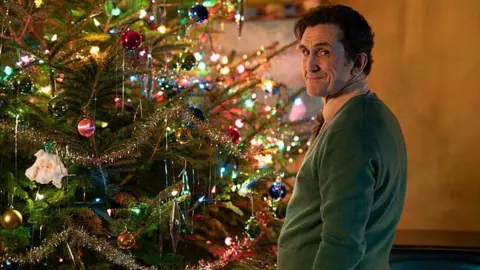 BBC/Neal Street Productions
BBC/Neal Street Productions
Stephen McGann, Heidi Thomas's husband, plays the show's GP Dr Turner
The show is also a family affair for Thomas, given her husband Stephen McGann plays a central character, GP Dr Patrick Turner.
His recognisable face is often the reason the couple are approached in the street by fans, who don't always realise who Thomas is.
"He's always quick to say: "'Oh, this is the lady who writes it'," she says, "and then they kind of go into a meltdown! I think some people don't realise we're married in real life."
The series is broadcast in up to 200 global territories, although its biggest audience is in the US.
She laughs as she recalls seeing the dubbed version of McGann on Italian TV while the couple were away on holiday there.
"They gave him a really deep, sexy laugh, out of all proportion to what he was saying - it was a lovely 'har har har'."
Thomas, whose other writing work includes 2007 BBC period drama Cranford and 2017 mini-series Little Women, says despite how much of her life is entwined with the show, she still manages to keep home and work separate.
She rarely goes on set during filming, and explains that McGann never sees the scripts before they're issued to the other actors.
"That was a decision I made to protect his integrity as an actor at an early stage," she says. "But I think it's protected my writing space as well."

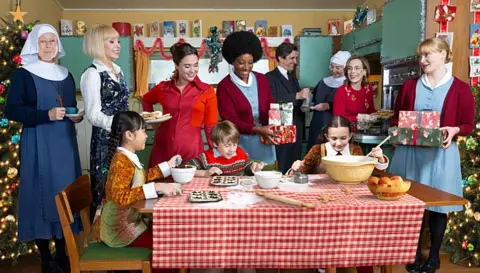 BBC/Neal Street Productions
BBC/Neal Street Productions
The show recently had two Christmas episodes broadcast on BBC One
She talks about the impact of the series abroad, including the stories it tells about illegal abortion.
"We've had requests from young American women to use clips from our show on their Instagram feeds, so they can warn their peers of what may happen if the laws in America are changed.
"You realise you are touching people's lives and perspectives in a very profound way."
She also speaks about the importance of kindness, which is in abundance on the show, and about her brother David.
He was born in 1970 with Down's syndrome and serious heart complications, and died in 1985.
"I've lived quite a long life now. I'm 62 and I grew up with quite a severely disabled brother, and that opened me to the goodness of people," she says.
"To the people who just met him as he was, accepted him as he was and loved him for what he was - that, at a very early, informative age, was my introduction to humanity," she says.
"And I honestly think that having somebody severely disabled at my side for the first 20 years of my life changed me for the good."

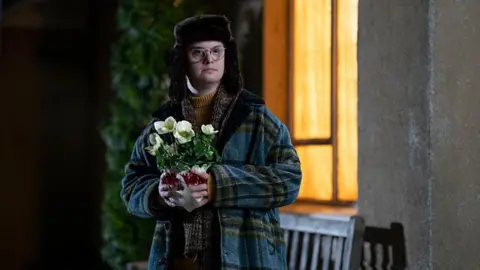 BBC/Neal Street Productions
BBC/Neal Street Productions
Reggie Jackson, played by Daniel Laurie, is central to Christmas specials
The show's character Reggie Jackson, played by Daniel Laurie, who has Down's syndrome, had a big storyline in this year's Christmas specials, putting him at the heart of the show.
Thomas ends by saying: "I think what this show is about, most of all, is love and kindness. It's about people doing their best.
"So I will carry on telling stories that show the better side of human nature."
Call the Midwife will be on BBC One at 20:00 GMT on Sunday 5 January 2025; the Christmas and Boxing Xmas Day episodes are available on BBC iPlayer.
 3 months ago
477
3 months ago
477

